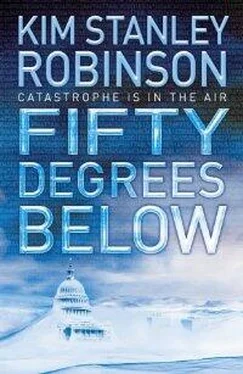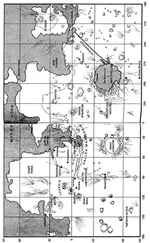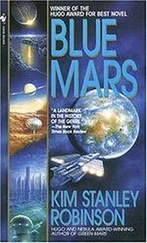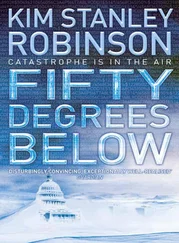“Try me and see,” Phil said. “Given the situation, it makes perfect sense. The president isn’t going to do anything. He and his oil-and-guns crowd will just try to find an island somewhere to skip to when they’re done raiding the world. They’ll leave us in the wreckage and build themselves bubble fortresses, that’s been their sick plan all along. Building a good world for our kids is our plan, and it’s scientific as can be, but only if you understand science as a way of being together, an ethical system and not just a method for seeing the world. What this political endorsement underlines is that science contains in it a plan for dealing with the world that we find ourselves in, a plan which aims to reduce human suffering and increase the quality of life on Earth for everyone. In other words science is a kind of politics already, and I’m proud to be endorsed by the scientific community, because its goals match the values of justice and fairness that we all were taught are the most important part of social life and government. So welcome aboard, and I appreciate the help, because there’s a lot to do!”
Thus ended the most active part of the first Social Science Experiment in Elective Politics. There would be much analysis, and the follow-up studies would suggest new experiments the next time around, presumably. The committee was there in place at the National Academy of Sciences, and it would have looked bad at that point if anyone inside or outside the Academy had tried to shut it down.
Diane, under stupendous heat from Republicans in Congress for appearing to have used a federal agency to support a political candidate, went to the hearings and shrugged. “We’ll study it,” she said. “We funded an experiment in our usual way.”
“Would you fund an experiment like that one again?” demanded Senator Winston.
“It would depend on its peer review,” she said. “If it was given a good ranking by a peer-review panel, it would be considered, yes.”
One of the Democratic senators on the panel pointed out that this would not be the first federal agency to get involved in a political campaign, that in fact several were at this moment working explicitly and directly for the president’s campaign, including the Treasury Department and the Departments of Agriculture, Education, and Commerce. While on the other hand NSF had just funded an experiment that had happened to catch on with the public.
The debate of the day roared on. The National Science Foundation had jumped into politics and the culture wars. Its age of innocence was over at last.
Frank and Rudra Cakrin continued to spend the last hour of most nights out in their shed, talking. They talked about food, the events of the day, the contents of their shed, the garden, and the nature of reality. Most of their talk was in English, where Rudra continued to improve. Sometimes he gave Frank a Tibetan lesson.
Rudra liked to be outside. His health seemed to Frank poor, or else he was frail with age. On their trips out together Frank gave him an arm at the curbs, and once he even pushed him in a wheelchair that was stored inside the house underneath the stairwell. A few times they went for a drive in Frank’s van.
One day they drove out to see their future home. The Khembalis had finalized the purchase of the land in Maryland they had located, a property upstream on the Potomac that had been badly damaged in the great flood. A farmhouse on the high point of the acreage had been inundated to the ceiling of the first floor, and a passing rowboat crowded with refugees from other farms had hacked through the roof to get into the attic. Padma and Sucandra had decided that the building could be made habitable again, and in any case the land would be worth it; apparently it was zoned in a way that would allow most of the Khembalis in the metro area to live there.
So Frank drove out the George Washington Parkway to the Beltway, Rudra peering out from the passenger seat with a lively eye, talking in Tibetan. Frank tried to identify what words he could, but it didn’t add up to much— malam, highway; sgan, hill; sdon-po, tree. It occurred to him that maybe this was what conversation always was, two people talking to themselves in different languages, mostly in order to clarify themselves to themselves. Or else just filling the silence, singing ooop ooop.
He tried to resist this theory, so Edgardo-esque, by asking specific questions. “How old are you?”
“Eighty-one.”
“Where were you born?”
“Near Drepung.”
“Do you remember any of your past lives?”
“I remember many lives.”
“Lives before this life?”
Rudra looked down at the river as they crossed on the Beltway. “Yes.”
“Not interrupted by any deaths?”
“Many deaths.”
“Yes, but I mean, your own deaths?”
Rudra shrugged. “This does not seem to be the body I used to inhabit.”
Out on the farm, Rudra insisted on trudging slowly up to the land’s high point, a low ridge at the eastern edge of the property, just past the ruined farmhouse.
They looked around. “So you’ll make this your new Khembalung.”
“Same Khembalung,” Rudra said. “Khembalung is not a place” He waved his arm at the scene. “A name for a way.” He wiggled his hand forward like a fish, as if indicating passage through time.
“A moveable feast,” Frank suggested.
“Yes. Milarepa said this, that Khembalung moves from age to age. He said it will go north. Not until now have we seen what he meant. But here it is.”
“But Washington isn’t very north of Khembalung.”
“From Khembalung go north, keep going, over top of world and down the other side. Here you are!”
Frank laughed. “So now this is Khembalung?”
Rudra nodded. He said something in Tibetan that Frank didn’t understand.
“What’s that?”
“The first Khembalung was recently found, north of Kunlun Mountains. Ruins located, recently, under desert mountain in Takla Makan.”
“They found the original? How old was the site?”
“Very old.”
“Yes, but did they say a date by chance?”
Rudra frowned. “Eighth century in your calendar?”
“Wow. I bet you’d like to go see that.”
Rudra shook his head. “Stones.”
“I see. You like this better.” Indicating the broad sweep of grass and mud under their gaze.
“Sure. More lively. Live living.”
“That’s true. So, a great circle route, and Shambhala comes to us.”
“Good way to put it.”
Slowly they walked down to the riverbank, a broad swath of mud curving around the ridge and then away to the southeast. The curve, Frank thought, might be another reason the land had been for sale. The natural snake-slither of riverine erosion would perhaps eat away this mud bank, and then the devastated grass above it. Possibly a well-placed wall could stabilize the bank at certain critical points. “I’ll have to ask General Wracke out for your homecoming party,” Frank said as he observed it. “He’ll have suggestions for a wall.”
“More dikes, very good idea.”
On their way back to the van they passed under a stand of trees, and Frank parked Rudra under one to take a quick survey of the grove. Two sycamores, a truly giant oak; even a stand of pines.
“This looks good,” he said to Rudra as he came walking back over the grass. “Those are really good trees, you could build in several of them.”
“Like your tree house.”
“Yes, but you could do it here. Bigger, and lower.”
“Good idea.”
Many remote underwater vehicles were cruising the North Atlantic, sending back data that quickly became front page news about the status of the stalled Gulf Stream. At the end of September a hurricane lashed Central America, dumping a great deal of rain in the Pacific, which would increase the salinity of the Gulf Stream further. All systems were go for the salt fleet now converging in the ocean west of Ireland; but in the meantime, with nothing more happening in the Atlantic, the news shifted its attention south, where the West Antarctic Ice Sheet continued to detach, in small but frequent icebergs at its new margin. The big fragment was adrift in the Antarctic Ocean, a tabular berg as big as Germany and thicker than any ice shelf had ever been, so that it had in fact raised sea level by several inches. Tuvalu was being evacuated; further ramifications of this event were almost too large to be grasped. Through October it remained just one more bit of bad news among the rest. Sea-level rise, oh my; but what could anyone do?
Читать дальше
Конец ознакомительного отрывка
Купить книгу












